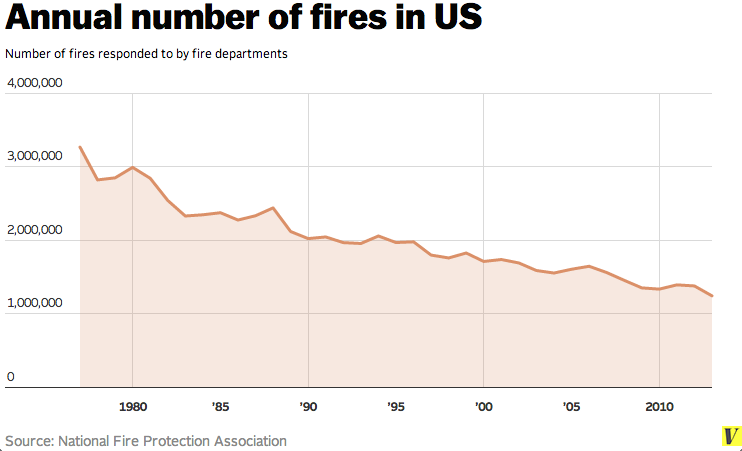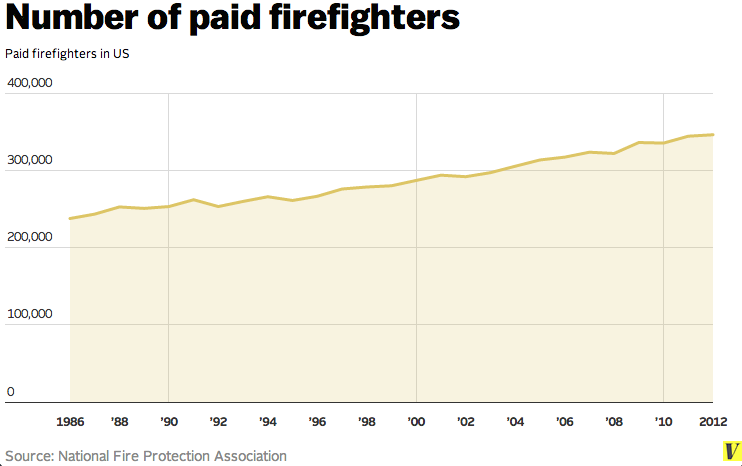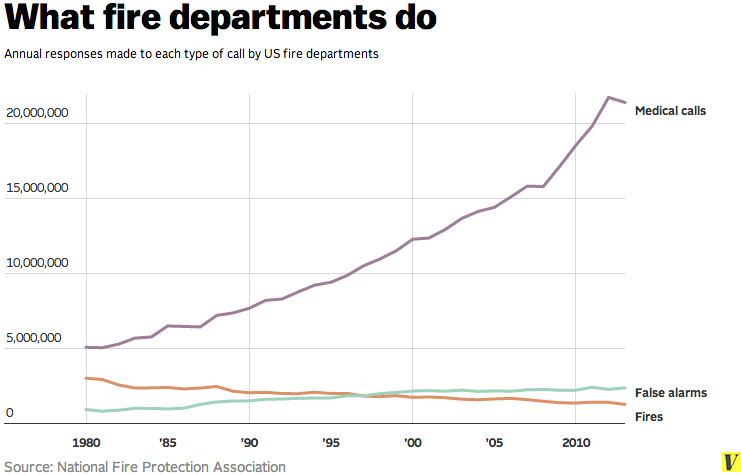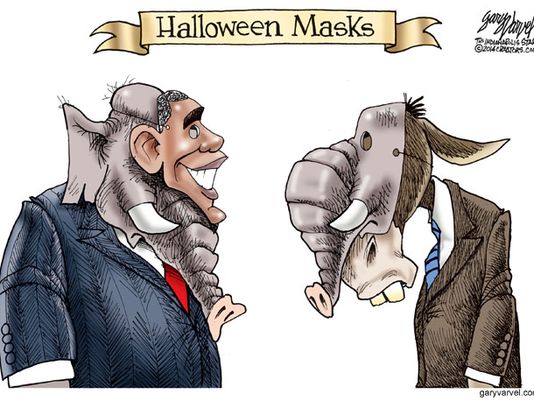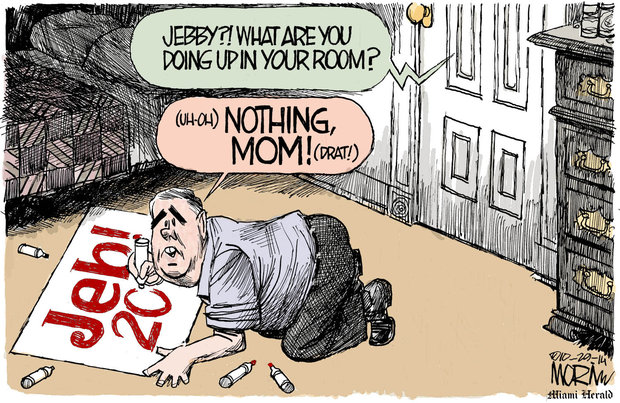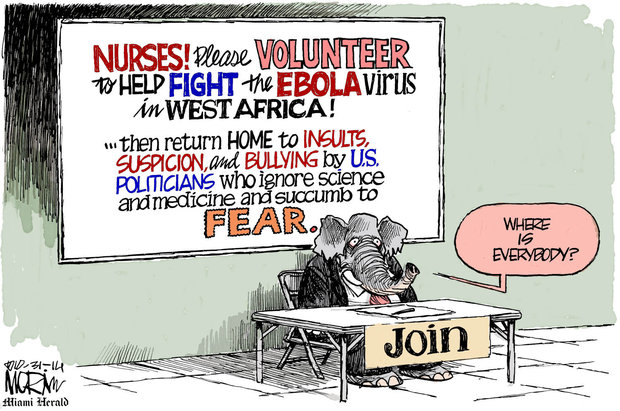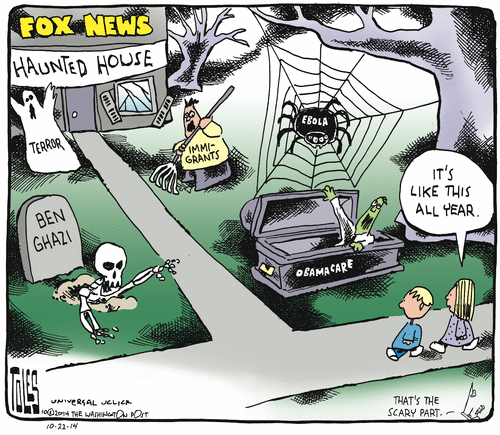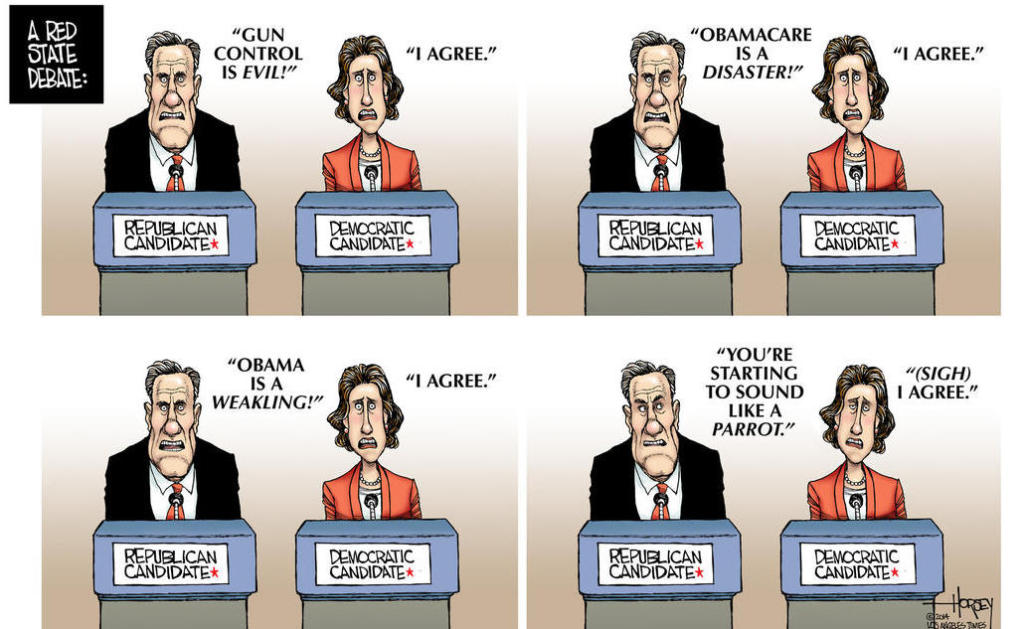OK, we just had our bi-annual vote to rearrange the deck chairs, and boy, people were angry. But what good will come of it is difficult to guess. This we do know: According to a CNN exit poll, 8 in 10 Americans disapprove of how Congress has been handling its job, while almost 6 in 10 are displeased with President Obama; 44% have a positive view of Democrats; 40% have a positive view of Republicans.
So, Americans elected the party they like the least to run the part of the government they trust the least.
There’s a lot of discussion of how and why Democrats did so badly, and much of it focuses on messaging. The litany of excuses is long: Democratic candidates were arrogant. The White House failed to transfer money, or stump effectively. The GOP caught up in the technology race, or the GOP recruited excellent, disciplined candidates.
Democrats ran on everything but?policy. Did the Democrats run the government well? Are the lives of voters better? Are Democrats as a political party credible when they say they’ll do something?
Their message was based on a group of poll-tested ideas that they thought would appeal to mainstream voters. But, the message, “vote for us, we’re not right-wing fanatics” didn’t cause the majority of us to turn out for the election. In fact, turn out was the lowest it had been in 40 years.
Liberal ballot propositions won in various parts of the country last Tuesday, from marijuana products (like https://www.cheapbudcanada.com/marijuana-products/vape-pens/fatboyz-disposable-thc-vape-pen/, for instance) to the minimum wage. Democrats didn’t. That should tell the Democratic Party something. Liberal policies can resonate with the public. It would be nice if there was a party which could embody and fight for those ideas.
So what would be a winning message? The economy. There’s infrastructure work to be done. The private sector could hire people to do it with government money. There are hungry people who need to be fed, and homeless people to be housed. And, ending our adventures in the Middle East would improve our lives.
“Vote for us, we bring peace, prosperity, and weed” – that slogan just might get you somewhere.
Keeping with the spirit of a new politics, here is your wake-up tune of the day. It is “Uprising” by Muse, released in 2009. So get upright and rock out:
Sample lyrics:
Rise up and take the power back
It’s time the fat cats had a heart attack
You know that their time’s coming to an end
We have to unify and watch our flag ascend
(so come on)
They will not force us
They will stop degrading us
They will not control us
We will be victorious
Here is your breakfast buffet of linkage:
Connecticut’s Democratic Governor was reelected, running as a progressive: It was close, but Dan Molloy won bigger this time against the same conservative opponent.
A case for treating health care and hospitals as utilities: Conservatives have won the battle to eliminate much of the government control in quasi-monopolistic markets like telecom and electric power. You be the judge about whether you are better off with de-regulation of those industries. Health care is a de facto monopoly, should it be treated as a utility?
Wikipedia is the sixth most popular website in the world, with 22.5 million contributors and 736 million edits in English. It’s as if the entire population of Australia (23.6 million) each contributed 30 times. 36 people run Wikipedia. Who are they?
Transparent solar panels could make solar power more competitive. CSEM, a Swiss technology company, have developed solar panels that you can see through and have no visible connections, which gives architects a lot of room to incorporate solar power into the walls of buildings without having to give up any aesthetic goals.
How often should you get dental x-rays? Dentists differ.
Many people believe that medical malpractice reform is the key to cutting cost from the health care system. But evidence shows that belief could be mistaken. However, if you have been affected by medical negligence, you’ll want to consider your options. Some people contact the hospital directly to complain about the medical professional who failed to take suitable care of them. A better alternative to this idea is actually to contact a personal injury lincoln ne service, or a lawyer more local to you. Seeking legal assistance can help you to strengthen your claim against the staff member in question.
The US currently has 30 declared presidential states of emergency. The University of Michigan explains why this is a bad idea. The National Emergencies Act requires the Congress to vote every six months on whether a declared national emergency should continue, Congress has done this only once in the nearly 40-year history of the Act.
Protect us from the media: CNBC’s “Squawk Box” anchor (Joe Kernan) shows complete ignorance of Ireland while talking to Martin Shanahan, head of the Irish Industrial Development Authority. Then he insists he is correct:
CNBC: You have pounds anyway don’t you still?
Shanahan: We have Euros.
CNBC: You have Euros in Ireland?
Shanahan: Yes. We have euros, which is eh…
CNBC: Why do you have euros in Ireland?
Shanahan: A strong recovery….
CNBC: Why do you use euros in Ireland?
Shanahan: Why wouldn’t we have euros in Ireland?
CNBC: Huh. I’d use the pound.
Shanahan: We use euro.
CNBC: What about Scotland? I was using Scottish eh…
Shanahan: They use Sterling.
CNBC: They use Sterling?
Shanahan: They use Sterling. But we use euro.
CNBC: What? Why would you do that?
And some of you use CNBC for investment advice!
Here is your thought for the week. It is from George Orwell:
The great enemy of clear language is insincerity. When there is a gap between one’s real and one’s declared aims, one turns as it were instinctively to the long words and exhausted idioms, like a cuttlefish squirting out ink. In our time, political speech and writing are largely the defense of the indefensible.
Thus political language has to consist largely of euphemisms, question-begging and sheer cloudy vagueness. Political language is designed to make lies sound truthful and murder respectable…

